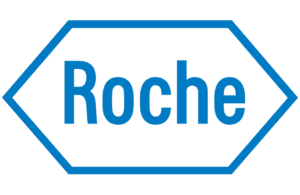 Facing potential competition from Novo Nordisk’s (NYSE:NVO) investigational blood coagulation factor stimulants Mim8, Roche (SIX:RO, ROG; OTCQX:RHHBY) released positive new data from the Phase 3 HAVEN 6 study focused on the use of Hemlibra (emicizumab) in patients with mild or moderate hemophilia A.
Facing potential competition from Novo Nordisk’s (NYSE:NVO) investigational blood coagulation factor stimulants Mim8, Roche (SIX:RO, ROG; OTCQX:RHHBY) released positive new data from the Phase 3 HAVEN 6 study focused on the use of Hemlibra (emicizumab) in patients with mild or moderate hemophilia A.
Hemlibra won FDA approval in 2018 for hemophilia A without factor VIII inhibitors.
The drug raked in almost $2.8 billion in sales in 2021.
In the open-label, single-arm HAVEN 6 study, two-thirds of Hemlibra recipients with mild or moderate hemophilia A had no treated bleeds at 55.6 weeks median follow-up.
Basel, Switzerland–based Roche said the drug continued to have a favorable safety profile in patients without factor VIII inhibitors.
The company plans on presenting the data at the International Society on Thrombosis and Haemostasis (ISTH) Annual Congress on July 11, 2022 in London.
Roche intends to ask the European Medicines Agency to update the label for Hemlibra to include non-severe hemophilia A patients.
“We are proud that Hemlibra continues to redefine the standard of care for more people living with hemophilia A,” said Dr. Levi Garraway, chief medical officer and head of global product development, in a statement. “The data presented at ISTH this year underscore Roche’s commitment to addressing gaps in care for hemophilia A, thereby ensuring that broader populations can potentially benefit from Hemlibra.”
The HAVEN 6 study included data from 72 participants (69 men and three women) with mild or moderate hemophilia A without factor VIII inhibitors.
In the study, 81.9% of participants had no spontaneous bleeds requiring treatment, and 88.9% had no joint bleeds requiring treatment.
In related news, Novo Nordisk recently announced that the Phase 1/2 FRONTIER1 dose-escalation study focused on hemophilia A met its primary safety endpoint.
Most participants in the lowest-dose cohort had at least one bleed in the study. However, only two out of 25 patients in the three higher-dose cohorts had reported bleeds.